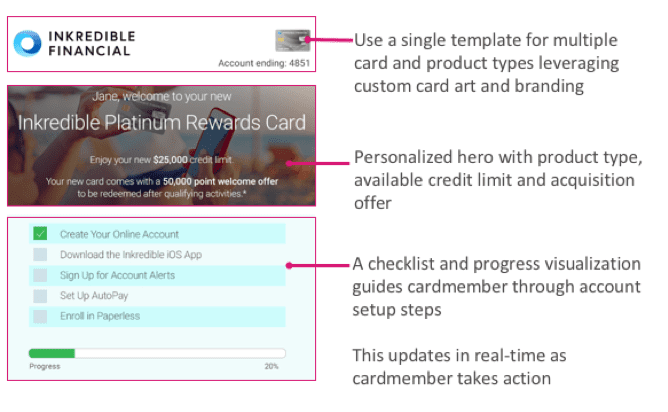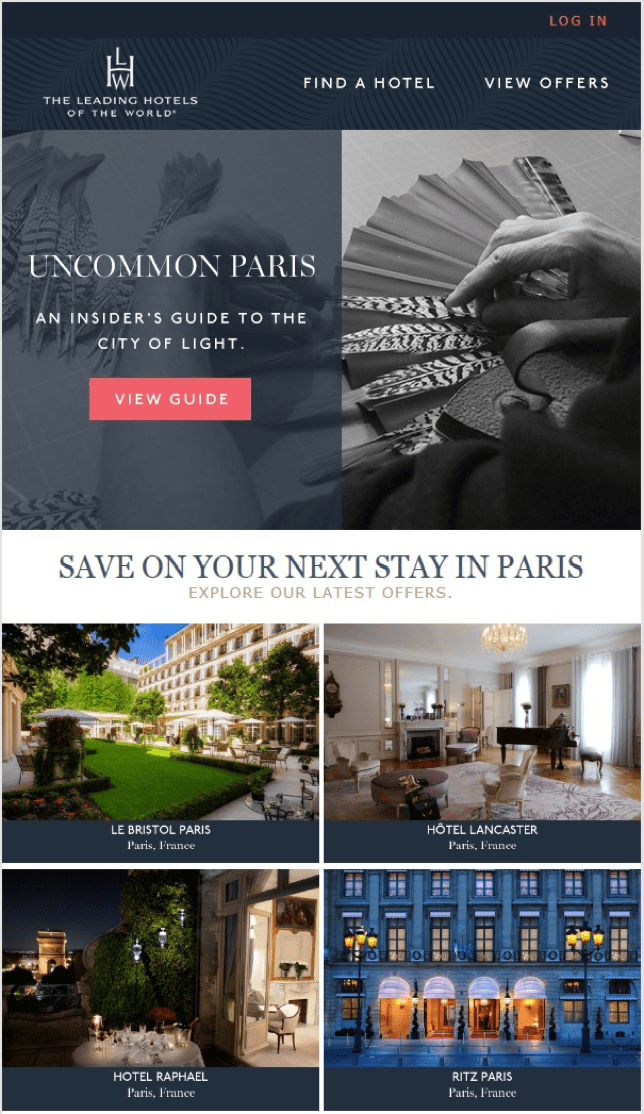Brands and retailers are constantly thinking about the ways they connect with their audiences. “What can we do to make our marketing messages resonate?” is a question we hear regularly, and the answer is short—personalized experiences—that’s what your customers want.
We’ve come a long way since the days of first name personalization. Marketers can now tap into a wealth of rich data endpoints that result in countless ways to create highly personalized visuals that take brand experiences to a whole new level.
Among those are these five personalization ideas you probably haven’t thought of.
5 Cool Personalization Ideas to Try in Your Next Campaign
1. Show your customers what they’ve done and what comes next
One of the most relevant ways you can use personalization is to show customers how far along they are in their account set-up process or profile completion, and give them important next steps.


Take this financial services email mockup as an example. Movable Ink can tap into client-owned data sources to grab information from an endpoint, and restructure the data points into a visual experience.
The visual experience that is generated at the moment of open clearly shows the steps that have been completed (and those pending) as well as a progress to completion bar.
These experiences drive engagement and impact the business bottom line by increasing conversion on key relationship milestones.
And the customer experience is highly personalized—not only does the email show what needs to be done, but it also clearly highlights what has already been completed by the individual.
2. Filter your products with real-time inventory and clickstream data
Spare your audience the disappointment of falling in love with a product in an email, then clicking through only to find that it’s sold out.
With real-time inventory, you can tap into your existing API feeds to make sure your campaigns only feature what’s actually available at the moment of engagement.
And you can take that concept even further with clickstream data. Brands can tailor content based on what their audiences have previously engaged with. You can either collect that data through your ESP or run a custom poll.
So, if a customer clicks through on a size medium shirt in your latest email campaign, then you know that customer’s size without explicitly asking them. In your follow-up emails, you can then filter the live inventory to show shirts that are currently available in a size medium.
3. Resonate with your global audience with language personalization
When brands have audiences in different markets, one of the biggest marketing challenges is scalability. It takes a lot of resources to translate a campaign, and that’s a nearly impossible feat for many brands.
The challenge is greater on creative teams, who need to design and QA each and every piece of content in each language that is targeted.
But, what if you could build the translated images in real-time? Personalization involves localizing your content, keeping language and cultural variations in mind. Marketers can now create countless creative variations as easily as creating just a few.


When The Leading Hotels of the World wanted to make sure their newsletter worked across different markets, they provided a CSV of text translations. Then, Movable Ink set up the necessary targeting to display each language via a merge tag.
We were able to host snippets of creative tags to translate the campaign into six different languages, all within the same HTML. It’s a single content block that’s deployable across all of their markets, with a language parameter triggering the language shown to each end-user.
4. Test your offer framing
When marketers, particularly retailers, think of incorporating offers into their campaigns, they normally feature a percentage off.
But what if you tested 10% off of a $100 purchase against $10 off of your next $100 purchase? The offer is economically the same, but this gives you the opportunity to see how your audience reacts to the different messaging.
With real-time creative optimization, brands can even test to see which creative variation and offer resonates with an audience—even after an email is in your customer’s inbox. As opens occur, underperforming versions are dropped until a winner is selected without the need for a 10-10-80 split.
5. Focus on scalable personalization
Brands regularly personalize their email campaigns based on known purchasing behavior and use that information to serve up recommendations.
But creating targeting rules for each and every campaign to incorporate these types of data points can be cumbersome. As such, marketers need to focus on how to make these personalization tactics scaleable.


In this campaign, Sam’s Club used online and offline behavior to create a highly personalized send. Their team worked with Movable Ink to power recommendations for each recipient, complete with real-time pricing.
The campaign builds itself upon every send—creating a message that is timely and highly personalized but only needs to be coded once.
Take these ideas to the next level by making these experiences cross-channel
While you’re creating personalized, data-driven visuals for your email campaigns, you can also go one step further and take that personalized experience across channels. Movable Ink can use the same API calls and data sources that power 1-to-1 emails to bring the same level of personalization on web pages.
Furthermore, this allows for the email to landing page experience to be connected—where the messaging, creative, and personalization tactics align across channels. This delivers on our key goal: making sure your customer feels acknowledged with relevant creative and content throughout each step of their journey.
Want to know how Iterable and Movable Ink partner to build personalized visual experiences? Request a custom demo of our integration today!





























